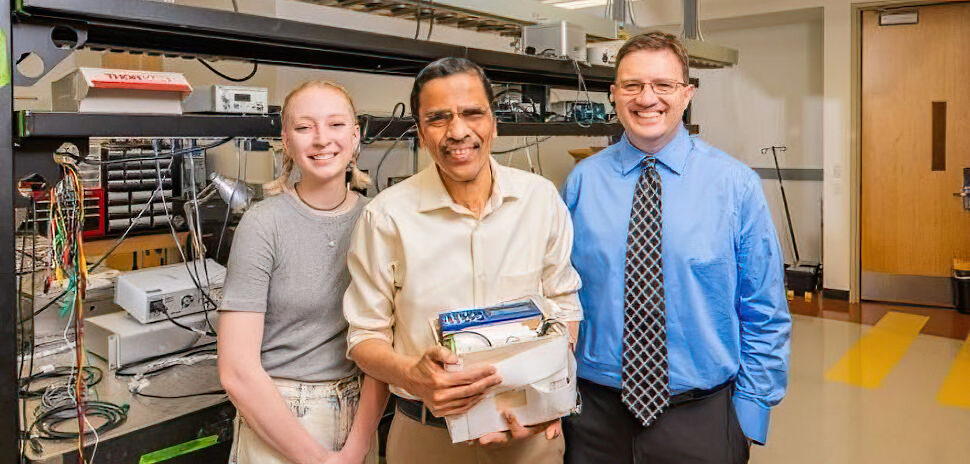Researchers at the University of Texas at Arlington’s Tribology, Lubrication, and Coating Laboratory have refined new vehicle lubricant technologies as part of an ongoing partnership with ESL TEKnologies.

UTA professor Pranesh Aswath [Photo courtesy of UTA]
The new lubricant developed at the university will reduce friction, fuel consumption, and the amount of emissions that come out of vehicles.
“Essentially what we are doing is enhancing existing lubricants that are there,” said Pranesh Aswath, a UTA professor of materials science and engineering and mechanical and aerospace engineering. “So, we have found a way in which we can add these nano additives to make existing lubricants more effective.”
The lubricant functions by modifying the chemistry of the surfaces that clog in an engine. The additives are incorporated onto the surfaces.
“So, we have found a way in which we can add these nano additives to make existing lubricants more effective.”
Pranesh Aswath
“It works by creating a film on the surfaces, which are better than the existing ones,” Aswath said.
This new research is a part of an 18-year partnership UTA has with ESL TEKnologies, according to the university.
The university’s Tribology, Lubrication, and Coating Laboratory currently holds more than 10 patents with some still pending including one for the new lubricant technology.
![]()
Get on the list.
Sign up to keep your eye on what’s new and next in Dallas-Fort Worth, every day.
And, you’ll be the first to get the digital edition of our new Dallas Innovates magazine:
The annual edition publishes in January






























